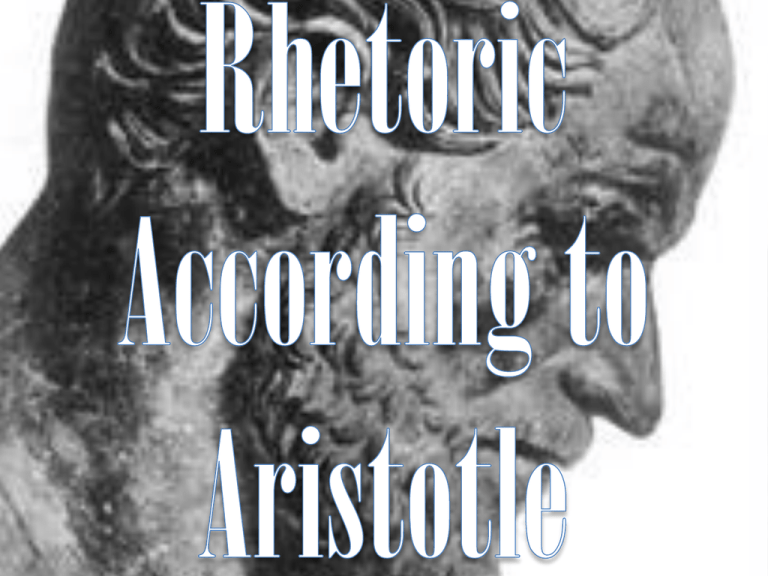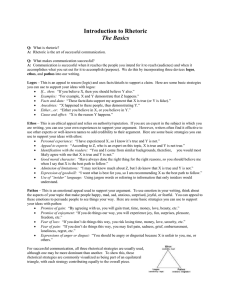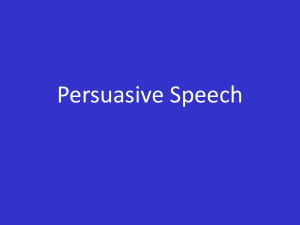Aristotle: Rhetoric
advertisement

• • • • Aristotle the Greek philosopher: was the first to classify areas of human knowledge into distinct disciplines such as mathematics and biology. considered the Father of logic. was the first to develop a formalized system for reasoning. observed that the validity of any argument can be determined by its structure rather than its content. Age of Enlightenment: Democracy urged many to favor argument as an effective means of decision-making. This “arguments” took the form of political debate and speeches. Rhetoric: the art of speaking or writing effectively as a way to persuade or influence people. Aristotle divided the means of persuasion into three categories-Ethos, Pathos, Logos. Ethos (Ethical appeal) convincing by the speaker’s character. We tend to believe people whom we respect. Pathos (Emotional appeal) means persuading by appealing to the reader's emotions. Logos (Logical appeal) means persuading by the use of reasoning. Giving reasons is the heart of argumentation. Rhetorical devices are devices used to manipulate the language to effectively persuade an audience. Figurative language such as metaphor and personification are also considered rhetorical devices. Let’s Watch! Ethos (Ethical appeal) Pathos (Emotional appeal) Logos (Logical appeal) “Rules to Stop Pupil and Teacher From Getting Too Social Online” By JENNIFER PRESTON DEC 2011 New York Times • With a partner, read the article. • Using a highlighter, highlight and label the argumentative appeals used by the author. • For each appeal, write 1-2 sentences explaining if the argument was effective or not. • In 3 paragraphs, write an opposing argument. Use all three appeals which you should highlight as well. Be sure to give an effective rebuttal stating your opinions why students and teachers should be allowed to have conversations via cellphones or online platforms.



